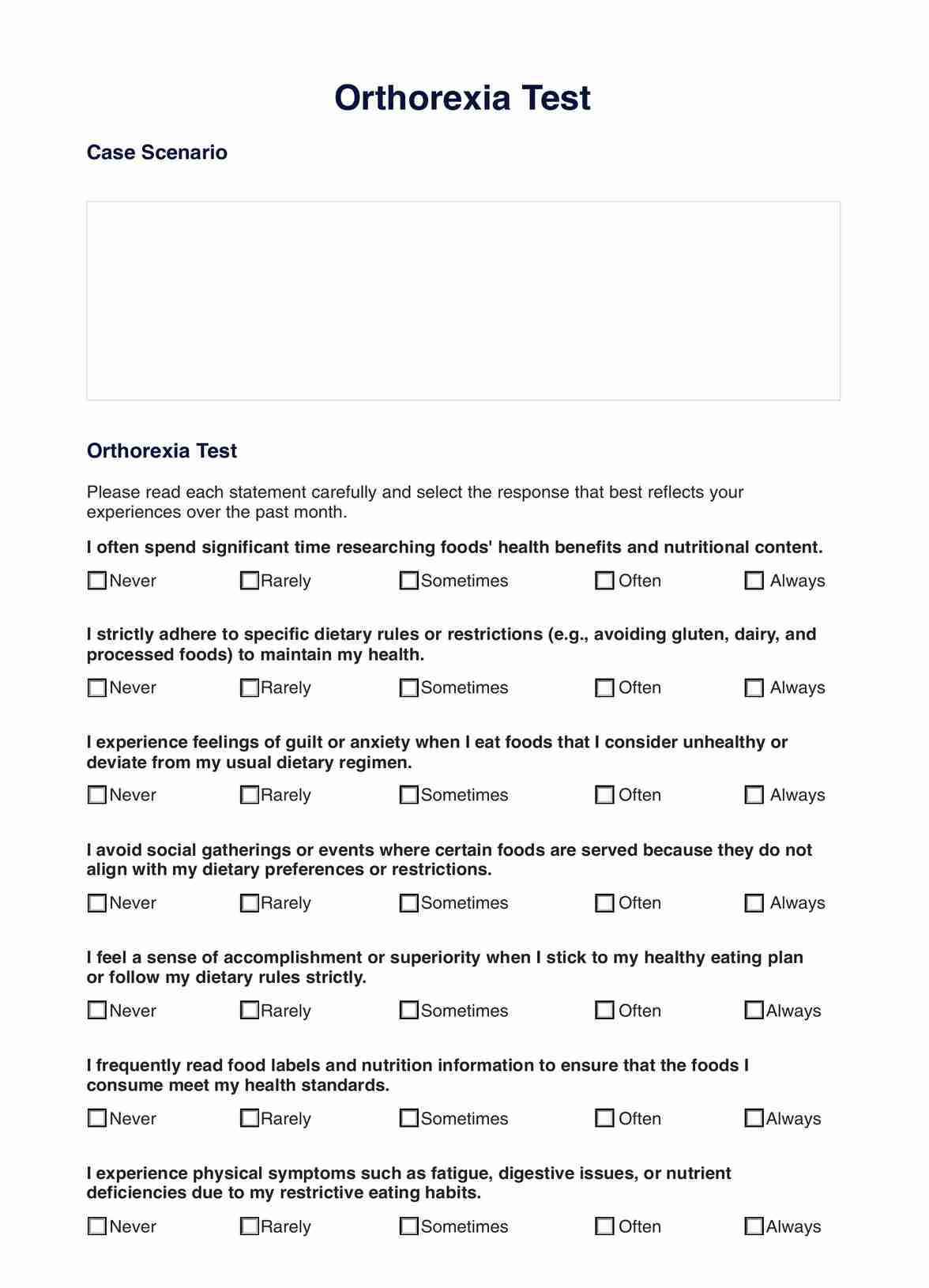The Bratman Orthorexia Test is a 10-question test developed by Bratman to assess orthorexic tendencies. Questions focus on aspects like preoccupation with restrictive diet, meal planning, and the impact of dietary restrictions on quality of life.

Orthorexia Test
Assess your relationship with food and well-being with our Orthorexia Test. Download the template now for a balanced approach to nutrition.
Use Template
Orthorexia Test Template
Commonly asked questions
The Orthorexia Test is designed to indicate whether an individual may be at risk of developing orthorexia by assessing common symptoms related to obsessive and restrictive eating behaviors.
Common signs of orthorexia include fixating on the quality or "cleanliness" of food, having rigid eating habits, and experiencing a decline in social or other life decreased academic functioning due to dietary beliefs.
EHR and practice management software
Get started for free
*No credit card required
Free
$0/usd
Unlimited clients
Telehealth
1GB of storage
Client portal text
Automated billing and online payments











